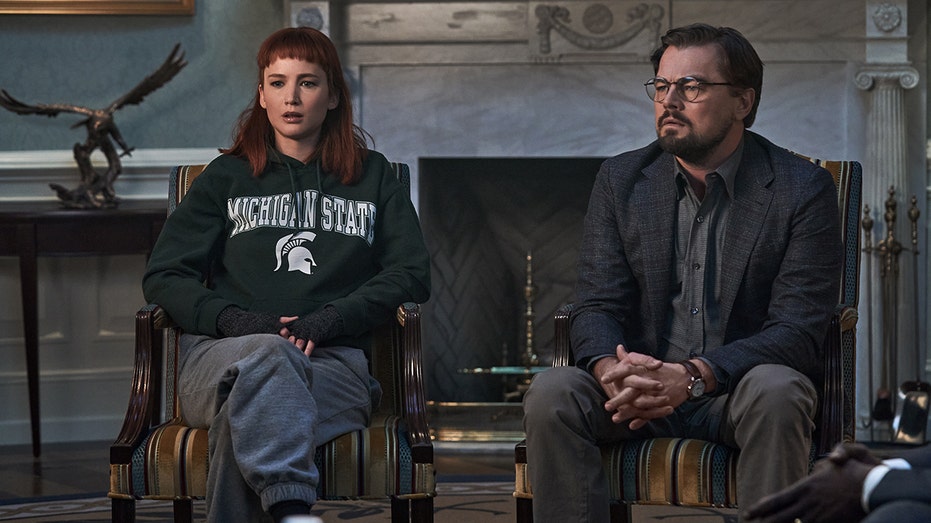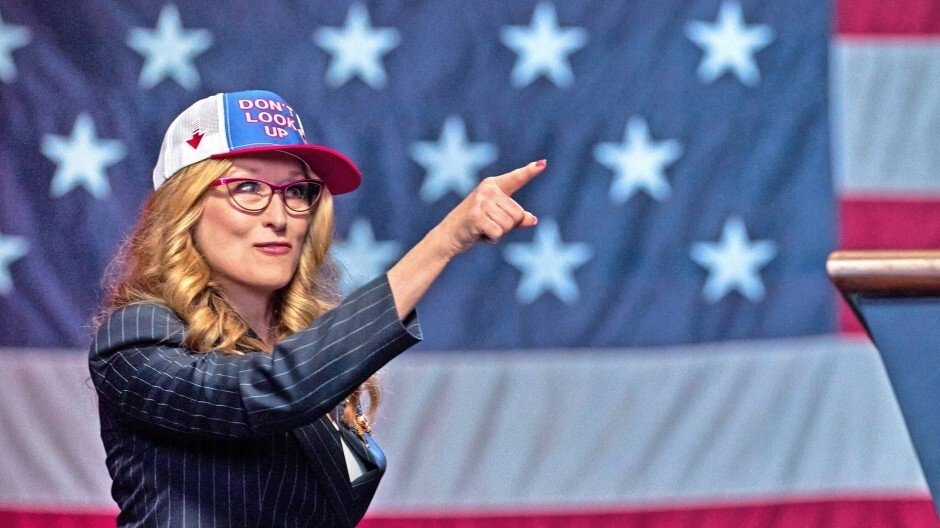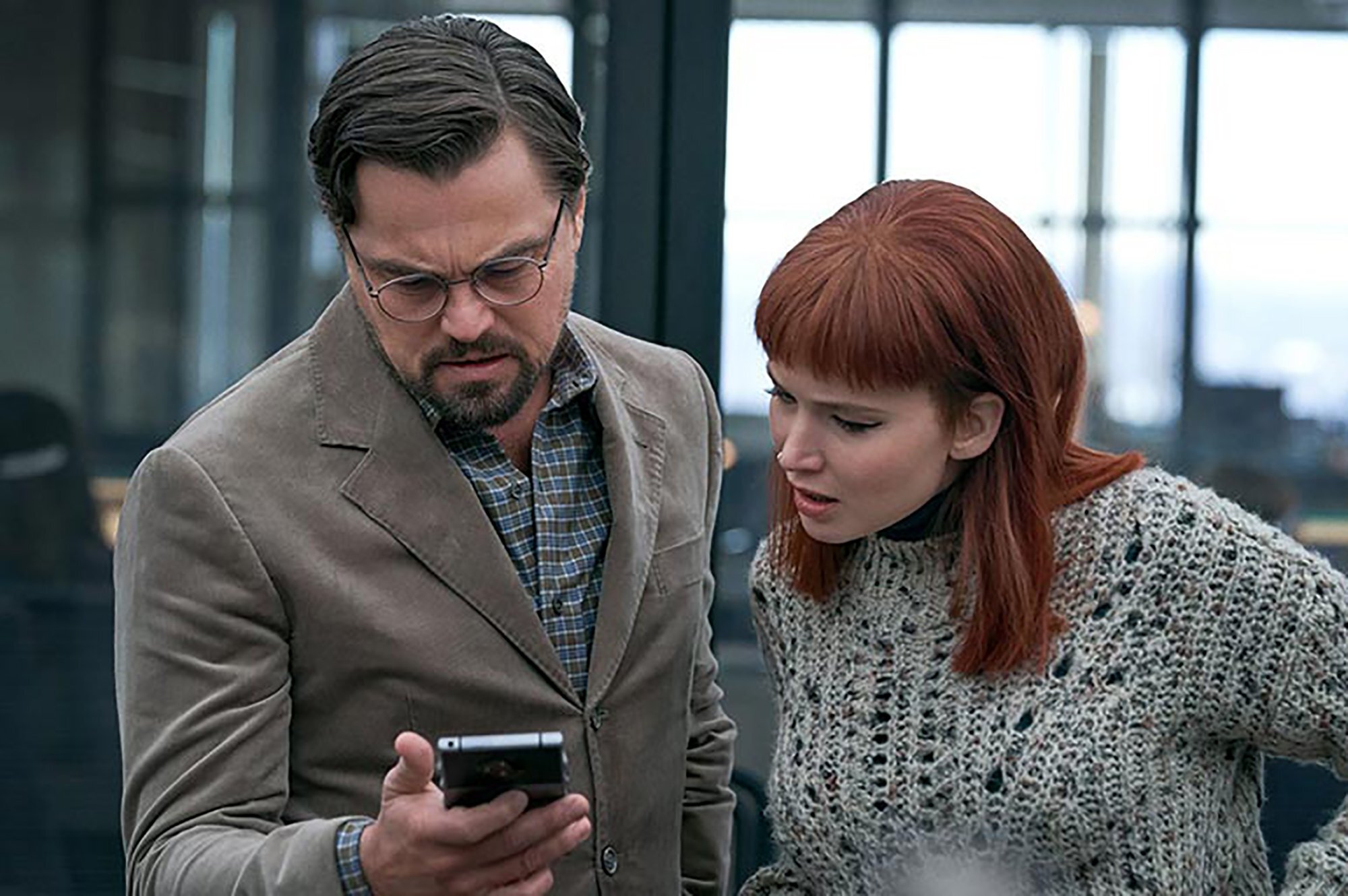Wed 02 February 2022
Illustrating a post-truth era through the story of a planet-killing comet, the 2021 comedy-disaster movie mirrors many aspects of today’s world
_____________________________________________________________________________________________________________
Despite its title, the movie “Don’t Look Up” released on Netflix on Dec. 24 urges people to look up at the sky. The star-studded cast, including Leonardo DiCaprio, Jennifer Lawrence, Cate Blanchett, Meryl Streep, Jonah Hill and Timothee Chalamet, is the primary reason for the excitement created by the production. Adam McKay, who has produced important works in black comedy, sat in the director’s chair. The film, which attracted great interest from the moment it was released, became the second most-watched Netflix movie to date, surpassing the 2018 “Bird Box.”
The story of the movie begins after Michigan State University astronomy Ph.D. student Kate Dibiasky, played by Lawrence, discovers a new comet and reports it to her professor, Dr. Randall Mindy. However, the excitement brought by this great discovery does not last for long as the two scientists face a terrible truth. In six months, this comet the size of Mount Everest will crash into the earth. There is only one thing to do to prevent this catastrophe that will destroy the world: to inform U.S. President Janie Orlean. But will the two astronomers be able to make it on the president’s busy agenda?

Jennifer Lawrence (L) and Leonardo DiCaprio in a still shot from “Don’t Look Up”.
Right after this moment, viewers may expect to see classic Hollywood scenes in which an American hero will sacrifice himself to save all the people of the world. They may wish to see quick steps being taken in the White House, a vague rush, phones ringing, the U.S. president’s urgent meetings with allied countries and a joint decision for the future of the planet. However, “Don’t Look Up” doesn’t meet any of these expectations. On the contrary, the U.S. president, played by Streep, tells the two scientists they will “sit tight and assess” as she does not want such news to overshadow the congressional elections due to take place in the near future.
Hero exits stage left
Although the theme of the movie seems quite fatal and calamitous, if you look for seriousness in it, you will be disappointed. The struggle started by the duo to save the world is presented with a mix of a little black humor and reality.
Since the two astronomers in the leading roles cannot get the support they want from the president, they reach out to the media where they think they can make their voices heard. However, things don’t go as planned there either. The comet does not receive media attention as it is not entertaining enough for the viewers.
The movie shows us the present day’s reality: Where there is no fun, there is no interest! The astronomers also become the subject of ridicule on social media and memes about them spread on every platform, which casts a shadow on the accuracy of the comet calamity in the viewers’ minds. At this point, the adventure of the duo turns into a show where they try to tell people that the world is coming to an end and that urgent action should be taken. However, this is not taken seriously and turns into a tragi-comical apocalypse show.
Can a disaster be a show?
I think one of the social criticisms emphasized in the movie is regarding society’s desire to turn everything into a spectacle. When theorist Guy Debord first wrote his book “The Society of the Spectacle” in the 1970s, I wonder if he understood the extent to which it would apply in today’s world.
The movie is almost decorated like a “heroic” show of actions to save the world. We see this best in the scene where the U.S. president tells the world her plan to prevent the crash. The recovery plan is presented to the public in the form of a celebration. The scene shows a blend of heroism and sacrifice, accompanied by an effective and encouraging speech, music and fireworks that put the announcement in the spotlight because the head of state needs such heroism for her own political career.

Large demonstrations are held throughout the film to convince society regarding the existence of such a danger. Mindy and Dibiasky try to explain the seriousness of the issue with big rallies, fireworks shows, stage shows and events featuring popular singers, without emphasizing logic. Rather than the content of the subject, the way it is presented to people also increases its impact on society. The more it is shared on social media, the more credible the issue becomes. All kinds of hashtags and challenges on the subject constituted the social media agenda. But it’s not serious, it’s fun. Serious conversations by scientists are either ignored or ridiculed. While watching these scenes, the word “post-truth,” chosen as the word of the year by the Oxford Dictionary in 2016, popped up in my mind in neon letters.
Funny lies
In fact, we see the concept of “post-truth” for the first time in 1992 in Steve Tesich’s article published in the Nation. Then Ralph Keyes published his book “Post-Truth Era” in 2004, and the concept was chosen as the word of the year 12 years later. To put it precisely, post-truth means “circumstances in which objective facts are less influential in shaping public opinion than appeals to emotion and personal belief.” Does this sound familiar? Yes, this is exactly what we see in “Don’t Look Up.” The fact that the comet will hit our planet, which is objective data, is less convincing than the discourse of a charismatic president. Or, if a post on the subject interests us on social media, we believe it to be right. Who is the scientist? Throughout the film, we watch how the existing truth becomes invisible. I can say the concept of the movie constructed satirical criticism of post-truth, which defines today’s world.
Is it worth watching?
The movie is 148 minutes. Though it is a bit long, it grabs your attention thanks to its tempo. Sometimes excessive social criticism is noticeable but is enjoyable as it makes us consider the reality of the world. Some details, in particular, appear very familiar. For example, the CEO of a technology company has the sole say in the future of the world. At the same time, the reactions of societies in the pandemic period and to climate crisis issues over the last two years are very similar to the ones in the movie. In fact, our experiences in recent years are just like this movie. (The movie is just a little bit more absurd). We fit important issues about our planet into hashtags, both in film and in real life.
“Don’t Look Up” is a movie you will enjoy watching but do consider the social criticisms it makes.








